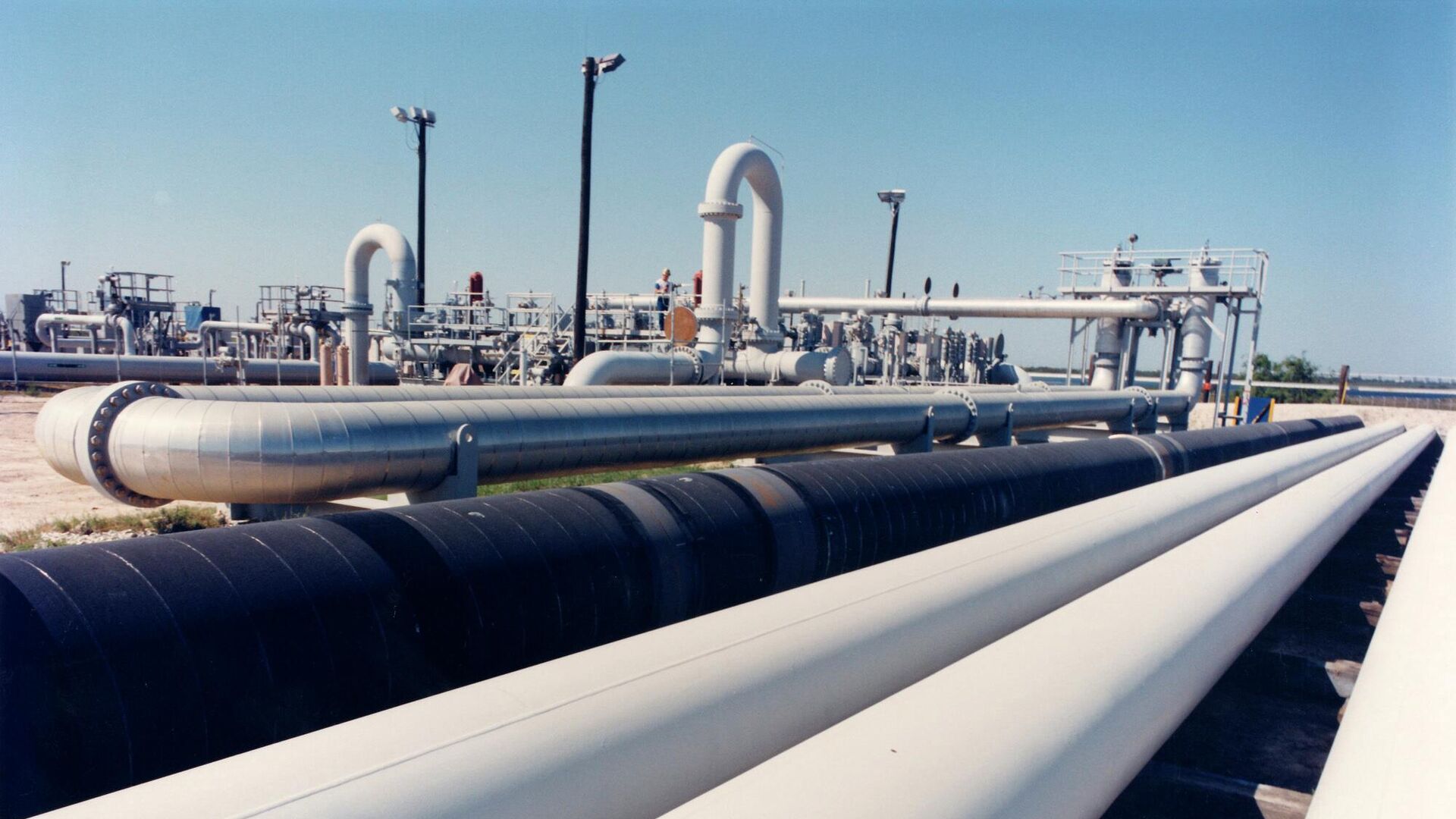https://sputnikglobe.com/20230110/oil-begins-second-week-in-2023-up-1-on-hopes-china-reopening-will-boost-consumption-1106183956.html
Oil Begins Second Week in 2023 Up 1% on Hopes China Reopening Will Boost Consumption
Oil Begins Second Week in 2023 Up 1% on Hopes China Reopening Will Boost Consumption
Sputnik International
After the worst week in a month to launch the new year, crude prices rose 1% on Monday as trading entered the second week amid hopes that China’s reopening its economy will boost oil consumption.
2023-01-10T02:32+0000
2023-01-10T02:32+0000
2023-01-10T04:59+0000
economy
crude oil
wall street
trading
china
https://cdn1.img.sputnikglobe.com/img/07e6/09/0d/1100720462_0:0:2000:1125_1920x0_80_0_0_075ca83cb23895c8e7a6804142258a07.jpg
New York-traded West Texas Intermediate (WTI) crude settled Monday’s trade up 86 cents, or 1.2%, at $74.63 per barrel, after hitting an intraday high at $76.72. London-traded Brent crude settled up $1.08, or 1.4%, at $79.65 per barrel, after a session high at $78.42. Both WTI and Brent lost more than 8% each last week for their biggest weekly declines since December 2. The two benchmarks were down about 10% each in the first two days of last week - marking the worst opening for oil in any trading year since 1991. Monday’s rebound came after China fully reopened its borders to international trade to eliminate the last remnants of the draconian COVID rules that shaped much of its social policies over the past three years. Demand for oil in China usually rises each year during the Lunar New Year period, which, this year, falls at the end of January. Chinese officials say they expect about 2 billion trips domestically during this year’s festivities, nearly double from last year and about 70% of the 2019 levels. However, some analysts have argued it would be impossible to say how China's oil demand will fare after the country pivoted from its COVID-zero policy. Data last week showed that the Chinese manufacturing activity shrank for a fifth straight month in December as the country grappled with an unprecedented spike in coronavirus cases. On another oil-specific development, China issued a second batch of 2023 crude import quotas that raised the total for this year by 20% from the same time last year, according to media reports.
china
Sputnik International
feedback@sputniknews.com
+74956456601
MIA „Rossiya Segodnya“
2023
Sputnik International
feedback@sputniknews.com
+74956456601
MIA „Rossiya Segodnya“
News
en_EN
Sputnik International
feedback@sputniknews.com
+74956456601
MIA „Rossiya Segodnya“
Sputnik International
feedback@sputniknews.com
+74956456601
MIA „Rossiya Segodnya“
oil prices, china oil, oil consumption, fuel prices
oil prices, china oil, oil consumption, fuel prices
Oil Begins Second Week in 2023 Up 1% on Hopes China Reopening Will Boost Consumption
02:32 GMT 10.01.2023 (Updated: 04:59 GMT 10.01.2023) NEW YORK (Sputnik) - After the worst week in a month to launch the new year, crude prices rose 1% on Monday as trading entered the second week amid hopes that China’s reopening its economy will boost oil consumption.
New York-traded West Texas Intermediate (WTI) crude settled Monday’s trade up 86 cents, or 1.2%, at $74.63 per barrel, after hitting an intraday high at $76.72.
London-traded Brent crude settled up $1.08, or 1.4%, at $79.65 per barrel, after a session high at $78.42.
Both WTI and Brent lost more than 8% each last week for their biggest weekly declines since December 2. The two benchmarks were down about 10% each in the first two days of last week - marking the worst opening for oil in any trading year since 1991.
Monday’s rebound came after China fully reopened its borders to international trade to eliminate the last remnants of the draconian COVID rules that shaped much of its social policies over the past three years.
Demand for oil in China usually rises each year during the Lunar New Year period, which, this year, falls at the end of January. Chinese officials say they expect about 2 billion trips domestically during this year’s festivities, nearly double from last year and about 70% of the 2019 levels.
However, some analysts have argued it would be impossible to say how China's oil demand will fare after the country pivoted from its COVID-zero policy. Data last week showed that the Chinese manufacturing activity shrank for a fifth straight month in December as the country grappled with an unprecedented spike in coronavirus cases.
“Oil’s downward trend was approaching critical support, so energy traders were eagerly looking for any reason to jump back into the oil trade,” Ed Moya, analyst at online trading platform OANDA, said. “Chinese hopes for an improving reopening from COVID could help propel oil prices much higher.”
On another oil-specific development, China issued a second batch of 2023 crude import quotas that raised the total for this year by 20% from the same time last year, according to media reports.


